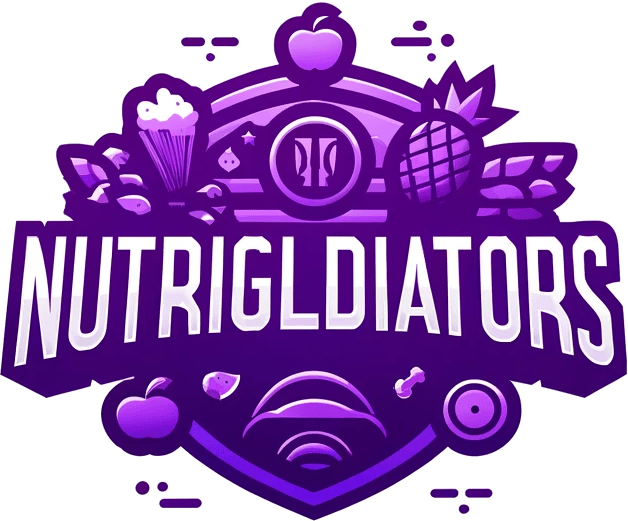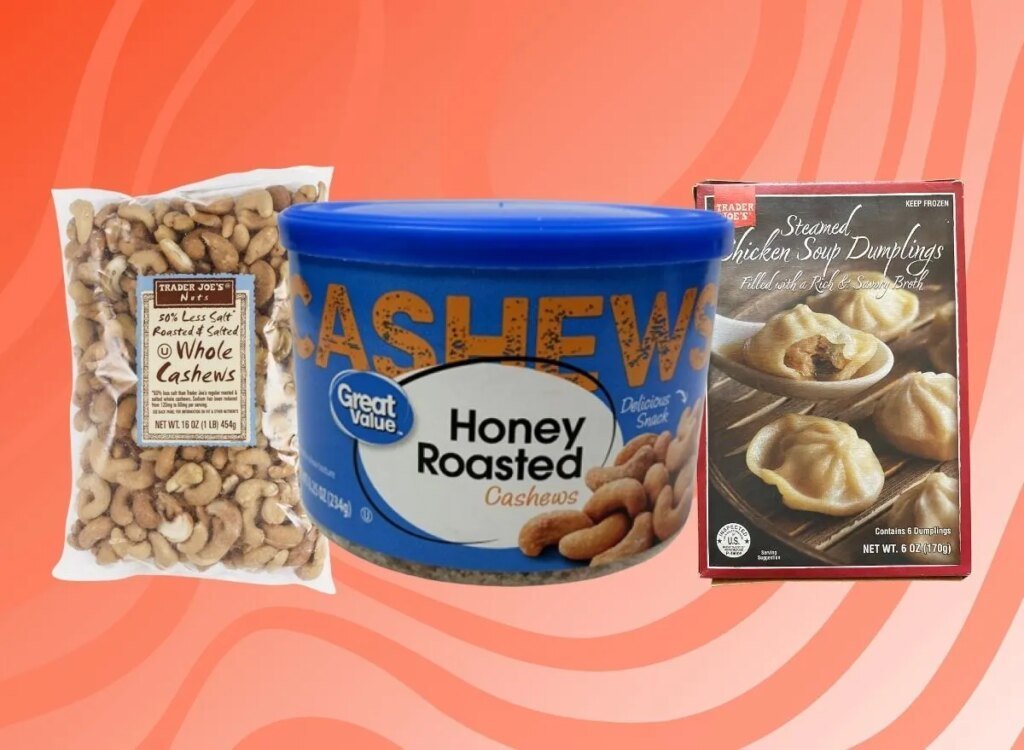[ad_1]
Food recalls have become an inevitable part of being a consumer in today’s world. Even companies that tout the best food safety practices may sometimes produce foods that present a safety risk to consumers, whether it’s because they contain an undeclared allergen or are contaminated with infectious bacteria. So when producers discover or suspect that one of their products is unsafe, they pull it from shelves and warn customers against consuming the item by issuing a recall.
The U.S. Food and Drug Administration (FDA) and the USDA’s Food Safety and Inspection Service (FSIS) both have dedicated pages on their websites where they frequently publish new recall notices. But unless you make a point of checking both government-run sites daily, it’s very possible that you could entirely miss a food safety warning that pertains to something in your own pantry—especially if it doesn’t make major news headlines.
So, to keep consumers up to date on which food products they should avoid, we’ve rounded up 15 major food recalls that every American consumer should know about right now. We will be continuously updating this story with the latest recalls as they are announced throughout 2024, so be sure to bookmark this page and check back for the latest.
Trader Joe’s 50% Less Salt Roasted & Salted Whole Cashews
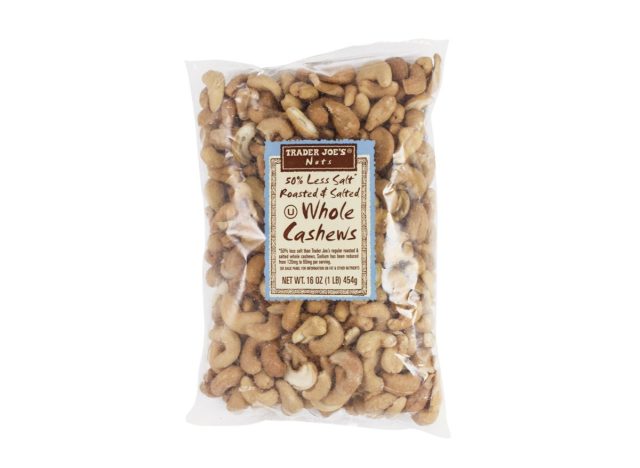

Trader Joe’s issued a recall for its 50% Less Salt Roasted & Salted Whole Cashews on March 17 because they may be contaminated with salmonella, a common cause of foodborne illness. The recalled cashews were sold in 16 states, the full list of which is compiled on the Trader Joe’s website.
The recall only applies to packages of the snack with the following lot numbers and “Best Before” dates:
- Lot #: T12139 – Best Before: Feb. 21, 2025
- Lot #: T12140 – Best Before: March 1, 2025
- Lot #: T12141 – Best Before: March 8, 2025
- Lot #: T12142 – Best Before: March 10, 2025
While no illnesses have been reported, Trader Joe’s urged customers to return packages with the recalled lot numbers and best by dates to either discard them or return them for a full refund.
Great Value Honey Roasted Cashews
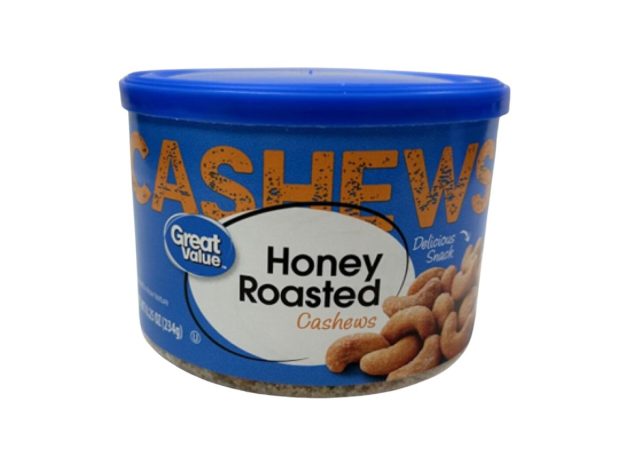

If you have a container of Great Value Honey Roasted Cashews in your pantry, check the packaging before grabbing a handful. The supplier for the private label snack sold at Walmart just recalled the product because it may contain undeclared coconut and milk, two allergens that can pose a risk to consumers with sensitivities. The recall announcement posted on the FDA website explains that a limited number of cans containing coconut cashews were mislabeled as Great Value Honey Roasted Cashews.
The recall applies to 8.25-ounce containers with a best by date of July 8, 2025, on the bottom of the can and the universal product code (UPC) 078742133348. The potentially impacted cans were sold at Walmart stores in 30 states and through the grocer’s website.
While no adverse reactions to the cashews have been reported to date, customers who still have the recalled snack at home should either discard it or return it to a Walmart store for a full refund.
Kroger salad kits
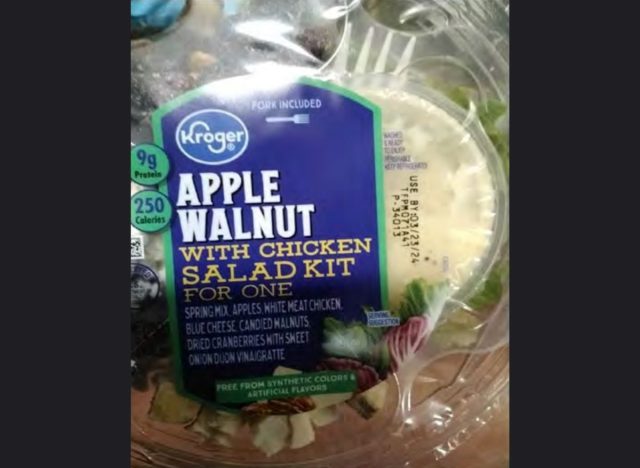

Nearly 20,000 pounds of chicken salad kits sold at Kroger stores were recalled on March 13 because they may contain undeclared wheat, an allergen that can pose a risk to those who consume it unknowingly.
The potentially contaminated salads, labeled as “Kroger Apple Walnut with Chicken Salad Kit For One,” were distributed in Alaska, Arizona, California, Colorado, Idaho, Montana, Nevada, New Mexico, Oregon, Utah, Washington, and Wyoming.
The recall only applies to 5.5-ounce clear with the use by dates of 03/12/24 through 03/22/24 and the following 13 lot codes: TFPM059B41, TFPM060B41, TFPM061A41, TFPM062A41, TFPM063B41, TFPM064A41, TFPM064B41, TFPM065A41, TFPM066A41, TFPM067A41, TFPM068A41, TFPM069B42, and TFPM071A41. The salads also have the establishment number “P-34013” below the use by date and lot code.
While there have been no confirmed reports of adverse reactions caused by the salads, consumers are urged to either discard them or return them to the place of purchase.
Johnsonville Turkey Kielbasa
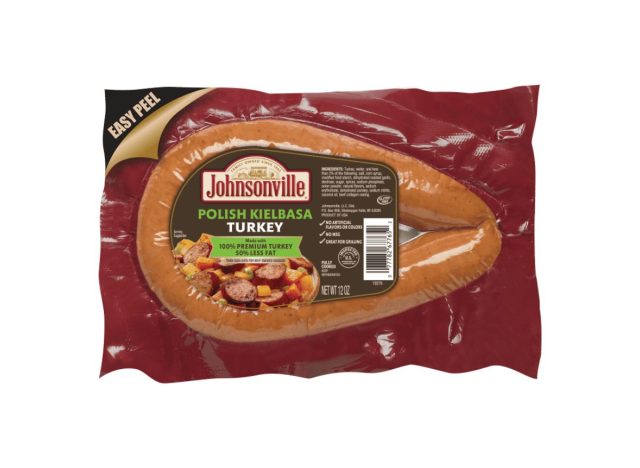

On March 7, a recall was issued for a whopping 35,430 pounds of Johnsonville brand turkey kielbasa sausage that was distributed to retailers nationwide. The reason? According to a recall announcement posted on the FSIS website, the sausage may be contaminated with pieces of rubber.
While there have been no confirmed reports of injuries or adverse reactions caused by the potentially contaminated sausage, consumers did report finding pieces of rubber in the ready-to-eat product. The recall only applies to 12-ounce vacuum-packed packages of the sausage with best by dates of 05/17/24 and 05/18/24 and the establishment number “P-32009” printed on the outside.
Anyone who has the recalled sausages at home should refrain from consuming them and either discard them or return them to the place of purchase.
El Chilar Ground Cinnamon
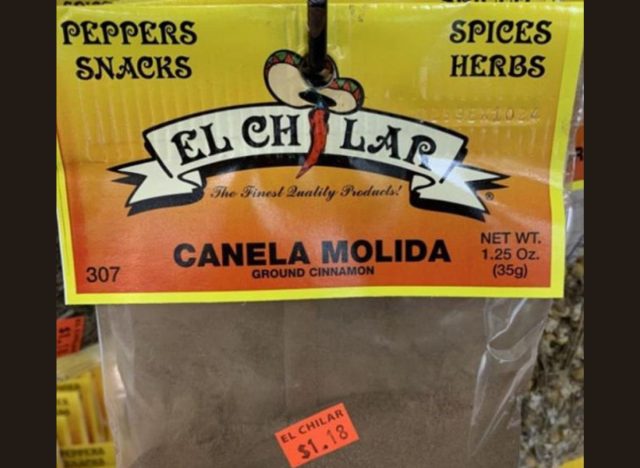

The Florida-based spice producer El Chilar is recalling 1.25-ounce bags of its Ground Cinnamon (also labeled as “Canela Molida”) that may contain traces of lead, which can cause detrimental health effects. While no illnesses have been reported to date, the Maryland Department of Health detected “elevated concentrations of lead” in the product after analyzing it, according to the recall announcement posted on the FDA website.
The recall only applies to bags with the lot codes D300 EX1024 and F272 EX1026 stamped on the front side of the packaging. Any consumers who still have the product at home are being urged to stop using it immediately and return it to the place of purchase for a full refund.
The FDA is also directing consumers to refrain from consuming several other ground cinnamon brands that were found to contain elevated levels of lead. The full list of brands and impacted lot codes and best by dates are all compiled on the FDA website.
Trader Joe’s Steamed Chicken Soup Dumplings
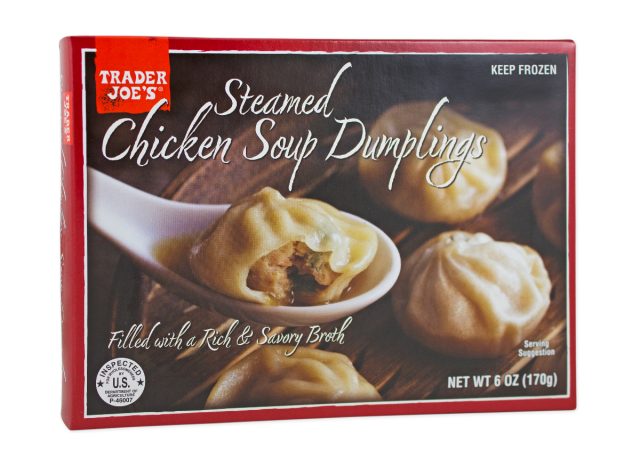

One of Trader Joe’s most popular frozen items, the Steamed Chicken Soup Dumplings, are being recalled because they may contain plastic. While no illnesses or injuries have been reported in connection to the product, customers have reported finding hard plastic inside the dumplings, according to the FSIS recall announcement.
The recall applies to packages distributed nationwide with a best by date of March 7, 2025 and the lot codes of C1-1 or C1-2. Anyone who has one of the impacted boxes in their freezers should either discard it or return it to their local Trader Joe’s for a full refund.
Roland Tahini
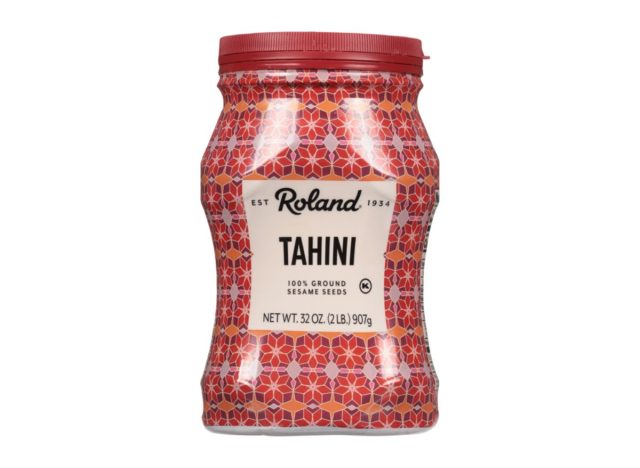

New York-based distributor Roland Foods is recalling a specific batch of its Tahini that may contain salmonella. The Feb. 27 recall announcement says that the product was distributed in many states from September 2023 through January 2024.
The recall only applies to 16-ounce containers with production code X0419, the batch number P024581, the UPC number 10041224701509, and a best by date of Oct. 19, 2024.
While no illnesses have been reported to date, salmonella was detected in the product during sampling by the Michigan Department of Agriculture and Rural Development. Customers who still have a container from the recalled batch at home should discard it.
Chick-fil-A Polynesian Sauce
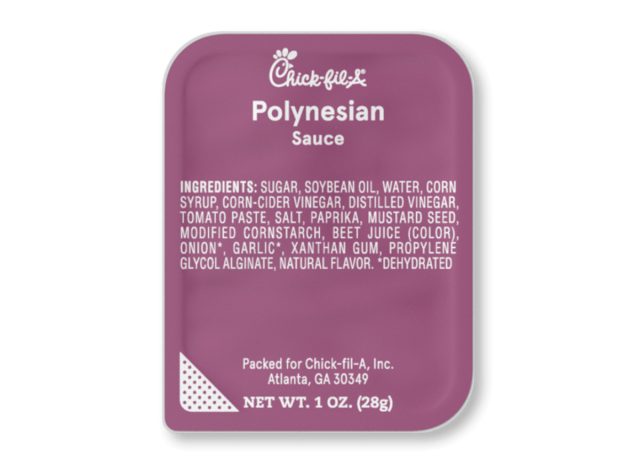

While this item hasn’t been officially recalled, it is at the center of an important food safety issue that consumers should know about.
Chick-fil-A is urging consumers to discard any Polynesian Sauce dipping cups they may have taken home between Feb. 14 and Feb. 27. An alert posted on the chain’s website explains that the cups may actually contain a different sauce that includes wheat and soy. Both can pose a major risk to consumers who are allergic to those ingredients. A Chick-fil-A spokesperson has confirmed that some Polynesian sauce cups were accidentally packed with Sriracha sauce, which contains both allergens.
Customers with any additional questions can call Chick-fil-A CARES at 1 (866)-232-2040.
Dozens of dairy products
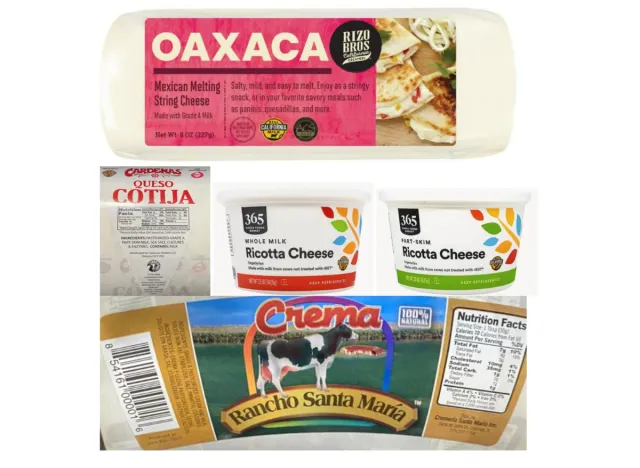

The most widespread and attention-grabbing recall of 2024 so far centers around a California-based dairy producer, Rizo-López Foods. Earlier this month, the company recalled dozens of its cheese, yogurt, and sour cream products that may have been contaminated with Listeria, which can cause foodborne illness. The products were sold under a variety of brands at many major grocery chains, including Walmart, Sam’s Club, and Whole Foods.
The recall was later expanded with additional products from other major retailers like Trader Joe’s, Costco, H-E-B, and Alberston’s. The FDA has compiled the names, photos, and all other relevant information about the recalled items on a dedicated page on its website.
It urged any consumers who still have these items at home to refrain from consuming them and discard them immediately. It also suggested carefully cleaning and sanitizing any surfaces that the recalled products came in contact with to mitigate the risk of infection.
Trader Joe’s Chicken, Lentil & Caramelized Onion Pilaf
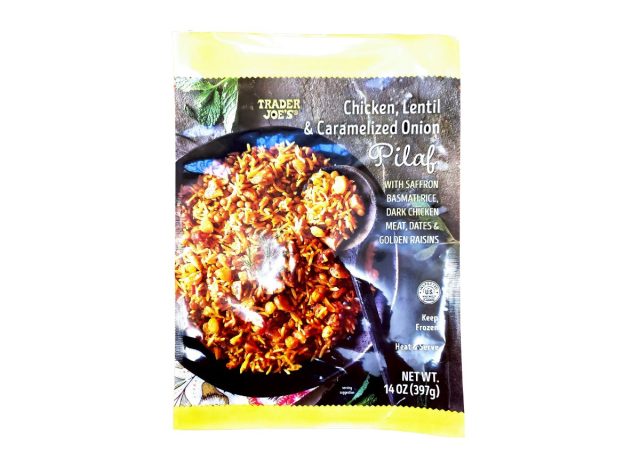

Just a couple of weeks after Trader Joe’s debuted its new Chicken, Lentil & Caramelized Onion Pilaf, the retailer pulled it from shelves after discovering that it may contain “foreign material”—specifically, rocks.
Trader Joe’s instructed anyone who purchased the recalled frozen item to either discard it or return it to one of its stores for a full refund. Customers with additional questions can contact Trader Joe’s by phone at (626) 599-3817 or submit a query through the company’s website.
Hormel Spiced Ham
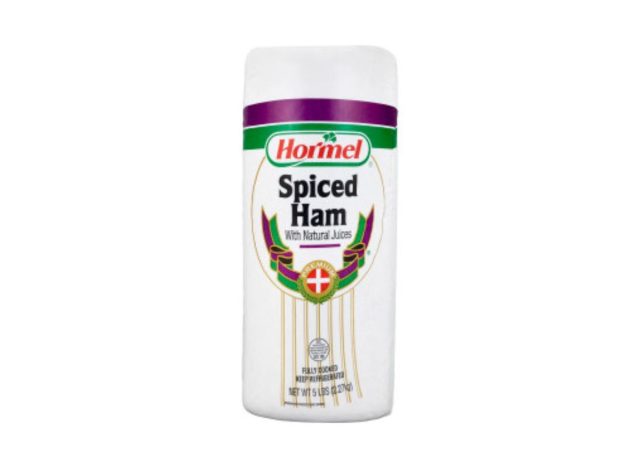

On Feb. 3, Hormel Foods issued a recall for roughly 945 pounds of ready-to-eat spiced deli ham that may have been contaminated with milk, an undeclared allergen. The recalled meat was distributed to retailers in Pennsylvania, which sliced the ham in their deli sections for purchase by consumers.
The recall applies to five-pound packages labeled “Hormel Spiced Ham With Natural Juices” with the lot code 051424. But while the product was originally packaged in this manner, consumers may have purchased the ham in a different type of packaging after it was sliced by the deli sections at their local stores.
The FSIS urged delis against continuing to serve the ham and instructed any customers with milk allergies who purchased it to either return it or throw it away. No adverse reactions have been reported in connection to the product.
Banh Ba Xa and Banh Pia products
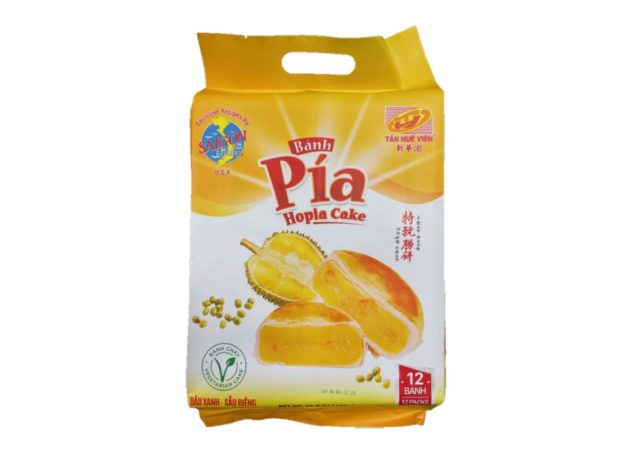

On Feb. 23, the California-based company LQNN Inc. recalled a dozen varieties of packaged pia cakes, a Vietnamese-Chinese treat featuring a pastry crust that can contain a variety of different soft fillings. The cakes (most of which were sold under the Saigon Gourmet brand) may contain undeclared egg, which poses a risk to people with allergies.
The recalled items were distributed in more than 30 U.S. states and Canada. While no illnesses have been reported to date, consumers who purchased them are being urged to return them for a full refund. The recall only affects products with certain best-by dates and lot numbers, all of which are listed on the notice posted on the FDA’s site.
Don Novo & Son meat products
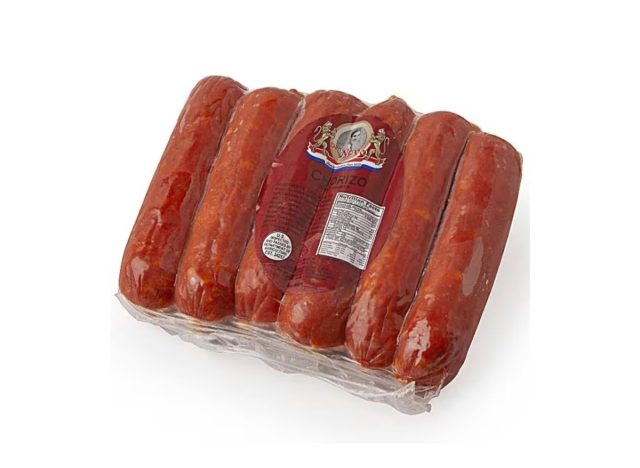

The Florida-based meat producer Don Novo & Son recalled more than 9,000 pounds of ready-to-eat meat products in mid-February. The reason? They may have been contaminated with Listeria.
The FSIS recall announcement revealed that a sample of the company’s products tested positive for Listeria, though no confirmed illnesses have been reported to date. The recall applies to the following five items, which were sold at retailers in Florida:
- Don Novo Fully Cooked Chorizo
- Don Novo Smoked Pork Ribs
- Don Novo Smoked Pork Loin
- Don Novo Sweet Cooked Ham
- Don Novo Cuban Brand Mortadella
Only packages of specific sizes and with certain expiration dates are being recalled. Customers who purchased one of these ready-to-eat meats can find all of that information and label pictures on the recall notice. The recalled products should be discarded or returned for a refund.
Golden Owl Dried Mango
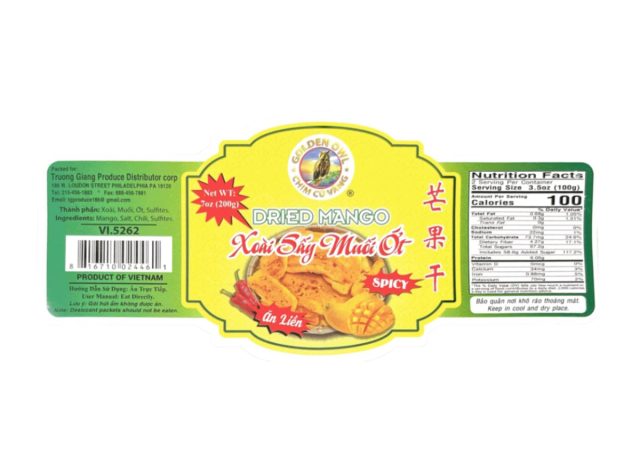

Though not technically a recall, a Pennsylvania-based supplier has issued an allergy alert for its Golden Owl Dried Mango, which was distributed nationwide in retail stores. While the alert was initially announced in late January, the company released an updated alert on Feb. 16 to correct the product packaging size.
The dried mango may contain undeclared sulfites, which could pose a health risk to people with allergies or sensitivities to sulfites. It was sold in seven-ounce clear plastic containers with the UPC code of 816710-024461.
While no illnesses have been reported to date, consumers are being urged to return the recalled item to the place of purchase for a full refund.
Fratelli Beretta Antipasto charcuterie products
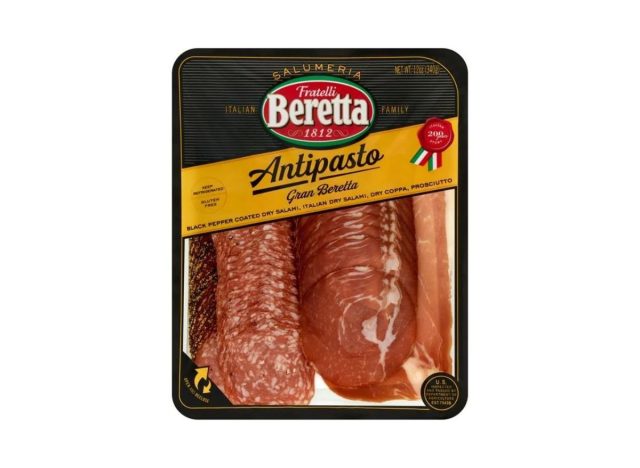

Proceed with caution if you get the urge to snack on any charcuterie. In mid-February, Fratelli Beretta recalled several charcuterie products that may have been under-processed, which means they could have been contaminated with foodborne pathogens.
The recalled meats were sold under several brand names and distributed nationwide to major retailers like Costco, Aldi, and Sam’s Club. All of the affected items have the establishment number “EST. M47967 or M7543B” printed on the front of the package or inside the USDA mark of inspection. Consumers can view the full list of recalled products and photos of their packaging here. Anyone who purchased the items should discard them or return them to the place of purchase for a refund.
This story has been updated to include new information, fact-checking, and copyedits.
Click here to get Blue Heron Health News at discounted price while it’s still available…
[ad_2]
